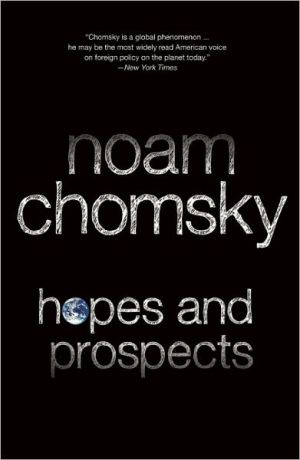The Unraveling of Scientism: American Philosophy at the End of the Twentieth Century
The Unraveling of Scientism, a companion to Joseph Margolis's Reinventing Pragmatism, follows the thread of American analytic philosophy through the second half of the twentieth century, the period of its greatest influence and activity. Margolis finds that the distinctive features of analytic philosophy were effectively altered, at about mid-century, most pointedly by W. V. Quine. Surprisingly, this was a time of declining conceptual invention and originality among the leading strands of...
Search in google:
The Unraveling of Scientism, a companion to Joseph Margolis's Reinventing Pragmatism, follows the thread of American analytic philosophy through the second half of the twentieth century, the period of its greatest influence and activity. Margolis finds that the distinctive features of analytic philosophy were effectively altered, at about mid-century, most pointedly by W. V. Quine. Surprisingly, this was a time of declining conceptual invention and originality among the leading strands of philosophy -- pragmatism, logical positivism and the unity of science program, and the principal continental European movements. The Unraveling of Scientism centers on the primary commitment of analytic philosophy through the twentieth century to what Margolis calls "scientism" -- the conviction that an unyielding reductionism, applied universally but in an exemplary way in the sciences, can provide a convincing account of the most important philosophical puzzles of the human world, those centered on the nature of the objective world, our knowledge of reality, language, and human existence. Margolis examines the principal puzzles that the analytic movement has addressed and argues that in recent years its claims have been effectively stalemated, perhaps even defeated.
PrefaceAcknowledgmentsFirst Word: Anticipation of a Final Reckoning11Materialism by Less than Adequate Means192Incommensurability Modestly Recovered423Restoring the Bond between Realism and Truth774The Unraveling of Scientism105Notes153Index175
\ From the Publisher"The Unraveling of Scientism reviews the major topics of concern in the current debate on analytic philosophy. With superlative style, Joseph Margolis offers a synoptic view grounded in the historic traditions of pragmatism and its continental, or Hegelian, roots."-Alex Orenstein, City University of New York\ "The Unraveling of Scientism is an excellent book in every way. Joseph Margolis takes us deep into the trenches and high above the battlefields of contemporary analytic philosophy to offer a big-picture perspective of scientism's last stand. He projects a future greening of philosophical analysis that preserves conceptual rigor but discards mainstream commitments to mind-body reductivism and semantic extensionalism. Margolis proves himself once again to be among the best informed and uncompromisingly acute critics of today's philosophical scene."-Dale Jacquette, The Pennsylvania State University\ "Lucid, compelling, and convincing, The Unraveling of Scientism shows once again why Joseph Margolis has been a celebrated figure in American philosophy for more than a quarter of a century. No one makes a better case for constructivism than Margolis, and he does so by deftly employing the skills of a disciplined analytic philosopher, even as he draws our attention to the perspicacity of Hegel and other historically minded continental philosophers. The Unraveling of Scientism is not only an excellent critical examination of analytic philosophy's commitments to scientism, it is also a timely and accessible introduction to Margolis's recent thought."-Mitchell Aboulafia, author of The Cosmopolitan Self: George Herbert Mead and Continental Philosophy and The Mediating Self: Mead, Sartre, and Self-Determination\ "Joseph Margolis, while endorsing the 'procedural rigor' of American analytical philosophy, rejects what he calls its 'scientism,' the commitment of its central figures to materialism and extensionalism. His extended argument proceeds dialectically by way of detailed (often irreverent) criticisms of Quine, Davidson, and most of the well-known analytical philosophers. As it unfolds, the argument is intertwined with a compelling history and a comprehensive map of the intellectual landscape of fifty years of analytic philosophy. Agree with it or not, this book is a remarkable achievement to which the defenders of materialism and extensionalism owe a serious response."-Hugh Lacey, Swarthmore\ \ \








